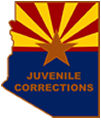Parole Supervision and Case Management
After a determination by the Department that a youth has met the standards to continue treatment, rehabilitation, and education in a less restrictive setting that are consistent with the public's safety and interest, the youth may be granted conditional liberty (parole) and placed under the care of the youth's legal guardian or placed in a community based treatment center. Each youth placed on conditional liberty is subject to the conditions imposed by the department, including an assignment to an educational program. When conditional liberty is granted, the youth and legal guardian receive and sign a copy of the terms of conditional liberty. Special conditions may be assigned by the Parole Officer or Hearing Officer based on individual needs, including sex offender and Interstate Compact conditions.
Community Corrections staff identify, support, and provide assistance to youth and families, actively engaging them in all aspects of services and activities upon return to the community. While the youth is in Adobe Mountain School, Community Corrections staff participate in monthly Multi-Disciplinary Team meetings, monitor the youth's progress, conduct initial home evaluations, and maintain continued contact with legal guardians to develop re-entry services. Community supervision levels are based on determined risk levels for recidivism. Additional components impacting supervision include treatment needs, educational needs, home environment, out-of-home placement and out-patient services.
ADJC implements graduated interventions for youth who fail to meet their conditions of supervision. Graduated interventions may include increased supervision, increased drug testing, deferred revocation, restricted placement, and additional community service hours. If graduated interventions fail to motivate compliance, a citation that requires the youth to appear at a conditional liberty revocation proceeding or a warrant for the apprehension of the youth may be issued leading up to suspension and revocation of conditional liberty. Collaboration continues with law enforcement entities and legal guardians during the time period when a warrant has been issued and leading up to apprehension.
If the Department determines that the youth's treatment, rehabilitation, and education pursuant to the individual treatment plan have been successfully completed and that there is a reasonable probability that the youth will observe the law and will not be a threat to the public's safety if at liberty, the youth may be granted an absolute discharge, under the discretion of Arizona Revised Statute (ARS) § 41-2820. Other discharges within statute include: attaining eighteen years of age or 19 if on extended jurisdiction; Civil Commit; and Discharge for Cause.

